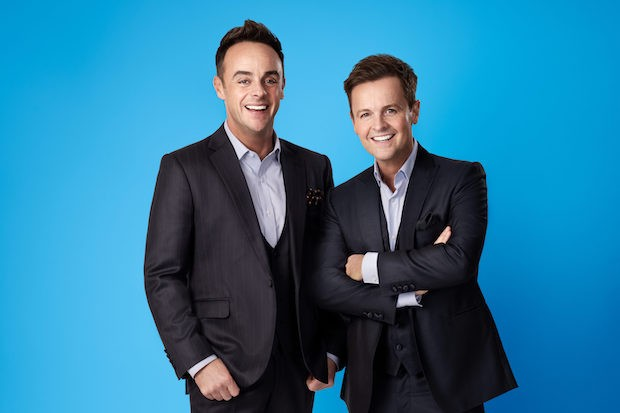Would you believe that simple "coffee talks" led to the rise of the insurance industry? [Wednesday: The Independent Investor]
| From the desk of Miles Everson: Happy midweek, everyone! How are you? I hope you’re all doing well. Let’s start this day with another brilliant investment insight from my friend and colleague, Professor Joel Litman. Every Wednesday, I feature topics like this to help you boost your wealth and achieve financial stability in the long run. For today, let’s focus on something related to interest rates. Join me as we backtrack a bit to understand the roots of insurances nowadays and why high interest rates aren’t necessarily bad for everyone. |
Would you believe that simple "coffee talks" led to the rise of the insurance industry? Did you know that the trend for coffee doesn’t only go so far in the food industry but also in the business industry? In fact, this trend dates back to the 1600s. Let’s go down memory lane for a bit…
Although coffee was new to the U.K. in the 1600s, it became a fast favorite among merchants and other professionals. Brewed gritty, strong, and shockingly bitter, folks compared its taste to everything—from old shoes and soot to mud and even feces. That’s why it was called “syrup of soot” back then. The drink took London by storm. By 1688, there were at least 80 coffeehouses in the city. While all these coffee chains served the same product, they attracted different customers. In fact, the shops were dubbed “penny universities” for their tendency to house debates on politics and science… and each became a little business hub for a different profession. Lloyd’s Coffee House , originally located just off the River Thames, catered to members of the maritime industry.
Captains, shipowners, and savvy financiers regarded Lloyd’s as the best source in London for up-to-date shipping information. While these individuals sipped their brew and reviewed the latest maritime news, these folks would also conduct some industry business… For example: Shipowners would approach captains about new ventures. Captains getting back from voyages would share information on pirate activity. Businessmen would approach shipowners, offering to protect their ships against the great unknown. This specific approach to ship protection set the standard for modern insurance companies… and today, we’ll talk about why the insurance industry is primed to flourish. From Ocean Travel to the World: The Rise of Insurances Ocean travel was dangerous in the late 1600s for a few reasons. Pirates… Storms… Diseases like scurvy and smallpox… Savvy businessmen realized they could make money by selling shipowners an assurance that they’d recoup their investments. Lloyd’s quickly caught on to this burgeoning enterprise. So, it started renting out tables for such men to set up shop. For a small fee, the businessmen would cover any losses if the ship didn’t return. Most of the time, ships ended up coming back and businessmen made a nice profit for covering the risk. Every once in a while, though, pirates or bad weather would get the better of a voyage… The businessmen realized they didn’t have to cover an entire ship by themselves. They found out it was smarter to spread out the risk by having several “underwriters” protect a single voyage. That way, if one ship failed to return home, it wouldn’t make an underwriter insolvent. [ Underwriter : Any party that evaluates and assumes another party’s risk for a fee in the form of a commission, premium, spread, or interest.] This approach to ship protection became known as “syndicated insurance.” It rapidly became the standard not just in maritime insurance, but across all sorts of industries. Modern insurance companies still perform syndication in various ways. They spread out risk by doing business with as many clients as possible. Some offer multiple kinds of insurance to limit the chances of one catastrophe causing massive losses. However, according to Professor Joel Litman , Chairman and CEO of Valens Research and Chief Investment Officer of Altimetry Financial Research , the market seems to have forgotten how well this approach works… especially in interest-rate environments. Professor Litman states while higher rates are bad news for consumers, they’re great for the insurance industry. Think about this: When insurance providers collect premiums, they don’t just put that money in the bank. They reinvest that money largely into fixed-income assets. Returns on these investments are dependent on interest rates. This means when rates are higher, every dollar of premiums an insurance company puts into investments should have higher returns. What’s even more interesting? A lot of insurers can also offset the swings in interest rates, thanks to a savvy investment strategy! In addition to corporate fixed-income assets, some invest in high-yield opportunities. The thing is, high-yield investments are riskier than traditional investments. While they’ve helped insurance companies when rates were low, insurers don’t need to take unnecessary risks today when rates are elevated. So, what does this mean for you? Not only are higher interest rates improving insurance providers’ potential returns; they’re also allowing them to reduce risk in their investment portfolios. … and according to Professor Litman, with interest rates likely to remain flat for a while, insurance providers should continue to reap the benefits of their investment strategy. Hope you’ve found this week’s insights interesting and helpful. EXCITING NEWS AHEAD The world of work has shifted, and there’s no going back. The barriers to entry have never been lower for talented professionals to work independently, and today’s massive external workforce is hardly a pandemic-produced fad. Business owners can only survive in the new work landscape by partnering with this deep talent pool. With decades of experience in both small-business entrepreneurship and executive management at PwC, I truly believe that the future of work is independent. With that, I’m happy to share with you that my book, co-authored with Walter Scott Lamb, is now available for pre-order on Amazon! Free Birds Revolution: The Future of Work & The Independent Mind This is an essential read for both independent professionals and corporate executives. Here, we provide educational and practical guides to unpack the ever-growing workforce and offer you crucial ways to become a client of choice. Click on the link above to pre-order your copy. Let this book help you future-proof your career and organization in the new world of work. Stay tuned for next Wednesday’s The Independent Investor! Just two weeks before 2024 ended, Jerome Powell, the chair of the U.S. Federal Reserve announced that the Fed would cut rates by another 0.25%. Learn more about the market’s prospects in 2025 and why the Fed’s recent warnings shouldn’t worry investors in next week’s article! |

Miles Everson
CEO of MBO Partners and former Global Advisory and Consulting CEO at PwC, Everson has worked with many of the world's largest and most prominent organizations, specializing in executive management. He helps companies balance growth, reduce risk, maximize return, and excel in strategic business priorities.
He is a sought-after public speaker and contributor and has been a case study for success from Harvard Business School.
Everson is a Certified Public Accountant, a member of the American Institute of Certified Public Accountants and Minnesota Society of Certified Public Accountants. He graduated from St. Cloud State University with a B.S. in Accounting.




